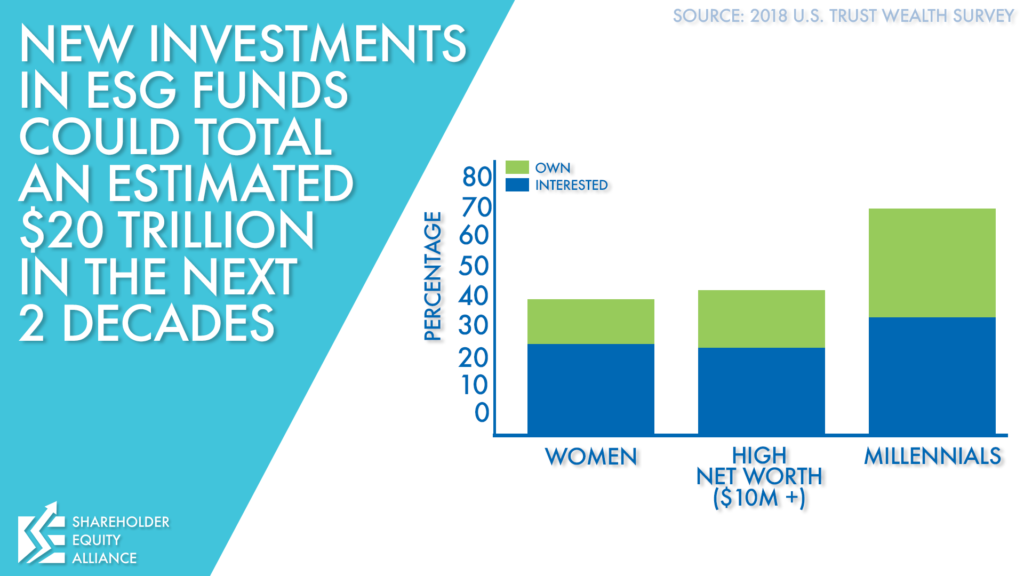U.S. corporate culture has come to an unfortunate place. Activists demand that companies’ first priority should not be to serve a unique purpose and make a profit, but to be stewards of the social and environmental justice whims of the day. One of the newest ways political activists are promoting this philosophy is through “impact investing.” That means return on investment (ROI) is secondary to being socially and environmentally “woke.”
Environmental, Social and Governance (ESG) shareholder proposals are a common strategy of impact investors seeking to achieve a political agenda. From 2016 to 2017, the number of ESG proposals in annual meetings rose from 31% to 41%. In the 2020 proxy season, it was very common to see a majority of shareholder proposals in the ESG realm. Striving to meet certain ESG standards isn’t a bad goal for a company. What’s worse is the way activists drag them through political smears if they fail to comply exactly as these activists demand. ESG standards often take years to achieve and come with hefty price tags. They also usually offer little or no ROI for shareholders, so companies forego their fiduciary responsibilities.
Impact investors might come from a place of conscience, but they give little attention to whether improvements in these areas will also increase the company’s profitability. That makes for a poor investment strategy. But that’s not say that companies can never focus on ESG and shareholder obligations mutually. On the contrary, companies like Walmart have proven that focusing on ESG initiatives can benefit employees, investors, and customers. Activists and companies alike should celebrate those achievements.
Doing Good for the Sake of Business
In 2005, Walmart’s stock prices were stagnant. Meanwhile, CEO Lee Scott was passionate about the environment, and he developed a strategy to combine solid business with sustainability. Leadership traveled around the globe to learn how to implement changes beneficial to the environment and their revenue. All that, without increasing customer prices.
“What if we used our size and resources to make this country and this earth an even better place for all of us: customers, associates, our children and generations unborn?” Scott asked at his project’s announcement. Walmart’s changes were positive for the environment and also improved Walmart’s bottom line (adding $150 million in 5 years). Their fleet truck efficiency doubled within a decade and Walmart began converting stores to use renewable energy sources. They even stocked the shelves with sustainable products, all without significantly raising prices for their customers. Keeping prices low was critical to customers’ brand loyalty. Achieving sustainability without losing loyalty was only possible because leadership, not outside activists, was in the drivers’ seat.
As investors, whether large or small, we should reject the idea of forced social, environmental or governance initiatives at the hands of corporate pressure campaigns. Businesses should not be politicized into making decisions that cause them to stray from their core mission and fiduciary duty to their shareholders. The bottom line is that businesses should be neutral. Businesses should focus on what they do best: business.

